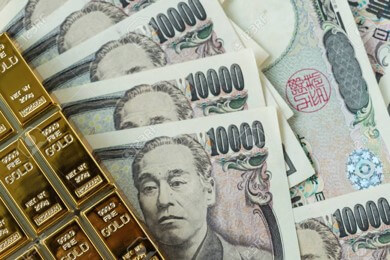
Can Yoshihide Suga Revive Japan’s Faltering Economy?
Yoshihide Suga, Japan’s new prime minister, faces a list of tough challenges. These include deep stagnation, labor shortages, and the Coronavirus.
Suga, who served as chief cabinet secretary during Shinzo Abe’s tenure as prime minister, did not offer new ideas on how his new government could revive Japan’s economy. He only vowed to continue to adopt Abe’s economic policy.
In late August, Shinzo Abe suddenly announced his resignation after developing an intestinal disease called ulcerative colitis.
Abe’s economic policy relies on three axes of fiscal stimulus, monetary relief, and structural reforms.
Due to the Coronavirus and last year’s consumer tax hikes, the world’s third-largest economy contracted at a record annual rate of 28.1% in April-June.
Hours before Suga’s official inauguration into the Japanese parliament, the Finance Ministry announced a 14.8% drop in the country’s exports for the 21st consecutive month compared to last year. This is despite a relatively weak yen.
Abe’s economic policies failed to achieve steady growth
During a debate in the race for the ruling party’s presidency last Saturday, Suga, who has no diplomatic or economic background, said Japan’s economy “improved significantly” during Abe’s tenure as prime minister, before the Coronavirus outbreak.
Saga stated that the livelihood of low-wage workers has improved. However, Abe’s economic policies failed to achieve steady growth amid stagnant wages and weak consumption.
The government raised taxes from 5% to 8% in April 2014, followed by a further 10% increase in October 2019.
Even before the coronavirus outbreak, the economy contracted by 7% in the fourth quarter of 2019. As compared to the same quarter last year, after a slight growth of 0.2% in the third quarter.
Richard Katz, a fellow at the Carnegie Council on International Relations, said that Abe would be judged on is his economic policy. The decline in personal consumption is not only because of citizens’ unwillingness to spend. But also because of higher taxes and lower incomes due to falling real wages. During Abe’s eight-year tenure as prime minister, the real wages per worker fell by 3.5%.
In April 2013, the Central Bank of Japan launched a strong monetary easing campaign. This was to help reach its inflation target of 2% in two years, intending to take the economy out of the deflationary climate that has plagued the country for more than a decade. However, inflation has not even approached the target.
-
Support
-
Platform
-
Spread
-
Trading Instrument




